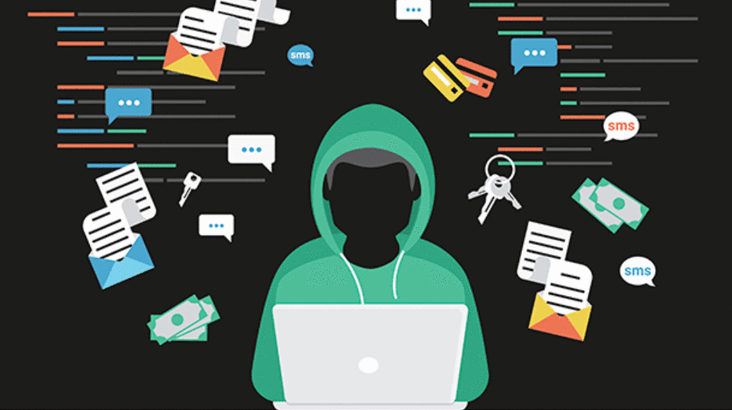AUTHOR: ROSE KELLY
DATE: 01/03/2024
INTRODUCTION
In today’s digital age, where software [1] is an integral part of our daily lives, the internet serves as a vast marketplace for downloading various applications. However, amidst the convenience [2] and accessibility lies a lurking danger: high-risk software downloads. These pose significant threats to users, ranging from malware infections to legal repercussions. In this article, we delve into the perils [3] of high-risk software downloads, their common risks, and how to protect yourself in the digital jungle.
Introduction to High-Risk Software Downloads
High-risk software refers to applications [4] or programs that pose a threat to the security, privacy, or functionality of a user’s device. These can include malware-infested files, pirated software, or applications with vulnerabilities that hackers exploit. Given the widespread [5] usage of software in India, it’s crucial to exercise caution when downloading to avoid falling victim to cyber threats.
Common Risks Associated with Software Downloads
The dangers of high-risk software downloads are manifold. One of the most prevalent risks is malware and viruses. These malicious programs can wreak havoc on your system, stealing sensitive information, corrupting files, or rendering your device unusable. Additionally, downloading software from untrustworthy sources can lead to data breaches and privacy issues, exposing your personal or financial information to cybercriminals. Moreover, engaging in piracy by downloading copyrighted material illegally can have severe legal consequences, including fines or imprisonment.

Factors Contributing to High-Risk Software Downloads
Several factors [1] contribute to the prevalence of high-risk software downloads in India. One primary factor is the lack of awareness among users regarding the potential risks associated with downloading from unreliable sources. Many users are unaware of the signs indicating a suspicious website or the importance of verifying the authenticity of software before installation. Furthermore, the urgency and impatience to access certain applications often lead users to bypass security protocols, making them vulnerable to malware and other threats.
Identifying High-Risk Software
To safeguard against high-risk software downloads, it’s essential to know how to identify potential threats. One method is to scrutinize the characteristics of the website offering the download. Suspicious websites often have poor design, numerous [2] pop-up ads, or grammatical errors indicating a lack of professionalism. Additionally, checking user reviews and ratings can provide insights into the reliability of the software. Moreover, relying on reputable security software recommendations can help users make informed decisions about which programs to download.

Protecting Yourself from High-Risk Downloads
Mitigating the risks associated with high-risk software downloads requires proactive measures. Firstly, users should opt for reputable download platforms such as official app stores or trusted websites known for their stringent security measures. Additionally, implementing robust security measures [3], such as antivirus software, firewalls, and regular system updates, can fortify your device against potential threats. Lastly, staying vigilant and exercising caution when downloading software can go a long way toward safeguarding your digital assets.
Legal Implications and Consequences
Apart from the technical risks [4] risks, engaging in high-risk software downloads can have severe legal ramifications. Piracy, in particular, is a prevalent issue in India, with many users resorting to downloading copyrighted material illegally. However, this practice is not only ethically questionable but also illegal, with offenders facing fines, lawsuits, or even imprisonment. Furthermore, involvement in illegal activities can tarnish one’s personal and professional reputation, impacting future opportunities and relationships.

Educational Campaigns and Awareness
To combat the scourge of high-risk software downloads, there is a pressing need for educational campaigns and awareness [5] programs. These initiatives can play a crucial role in educating users about the risks associated with downloading software from untrustworthy sources.high-risk Software downloads for PC in india Governments, cybersecurity firms, and non-profit organizations should collaborate to disseminate information about safe downloading practices and promote digital literacy among the populace. By empowering users with knowledge, we can collectively mitigate the risks posed by high-risk software downloads and create a safer online environment.
Conclusion
In conclusion, high-risk software downloads pose significant threats to users in India and around the world. From malware infections to legal consequences, the dangers are manifold. high-risk Software downloads for PC in india However, by exercising caution, staying informed, and implementing robust security measures, users can protect themselves against potential threats. Moreover, educational campaigns and awareness programs are essential for fostering a culture of digital safety and responsibility. Together, we can navigate the digital landscape securely and enjoy the benefits of technology without falling prey to its pitfalls.
FAQs
- What is high-risk software? High-risk software refers to applications or programs that pose a threat to the security, privacy, or functionality of a user’s device, often containing malware or other vulnerabilities.
- How can I identify trustworthy download sources? Trustworthy download sources typically include official app stores, reputable websites, and software recommended by trusted security providers. Be wary of suspicious websites with poor design or numerous pop-up ads.
- What are the potential consequences of downloading high-risk software? Downloading high-risk software can lead to malware infections, data breaches, legal repercussions such as fines or imprisonment for piracy, and damage to personal or professional reputation.
- Are there any legal alternatives to downloading software? Yes, there are legal alternatives to downloading software, such as purchasing licensed products from official distributors or using open-source software available for free.
- How can I report suspicious software downloads? You can report suspicious software downloads to relevant authorities, such as cybersecurity agencies or consumer protection organizations, to take appropriate action against fraudulent or malicious activities.





